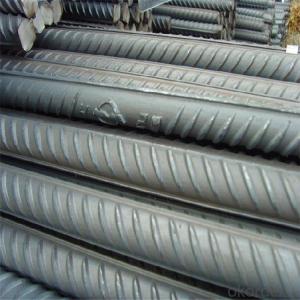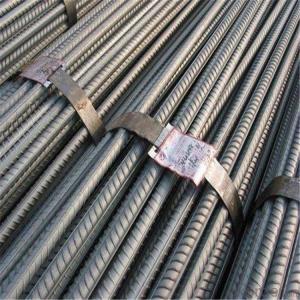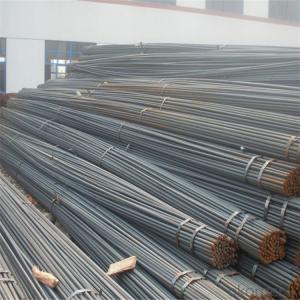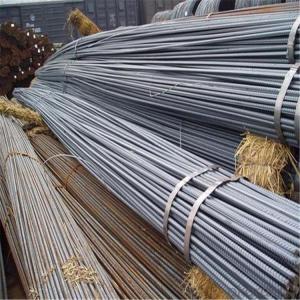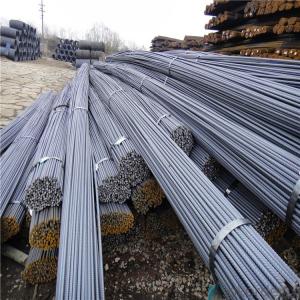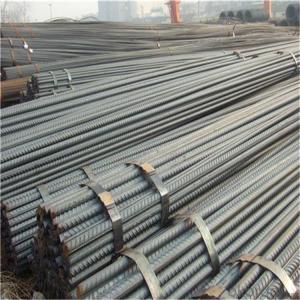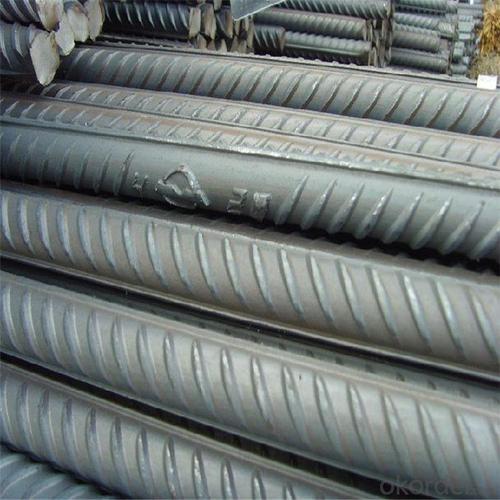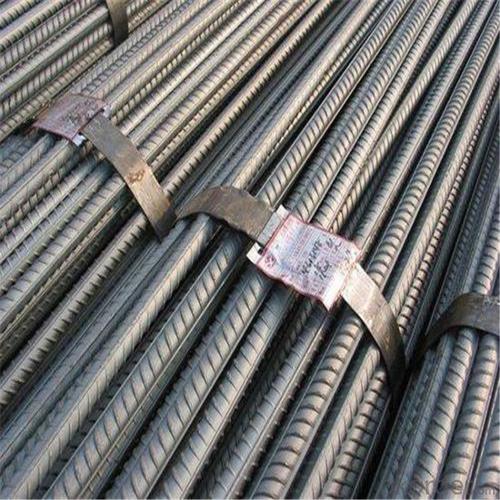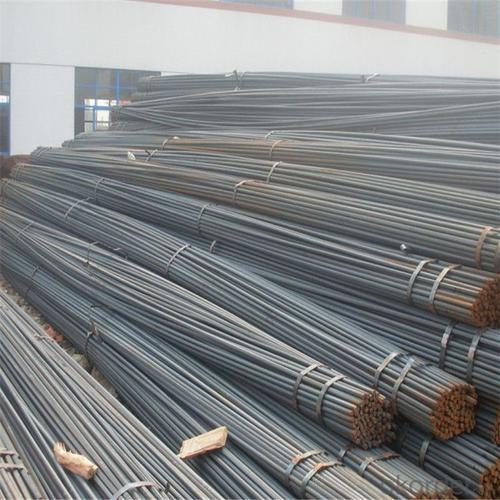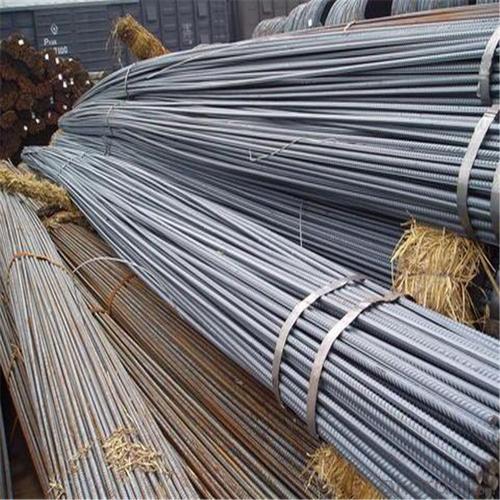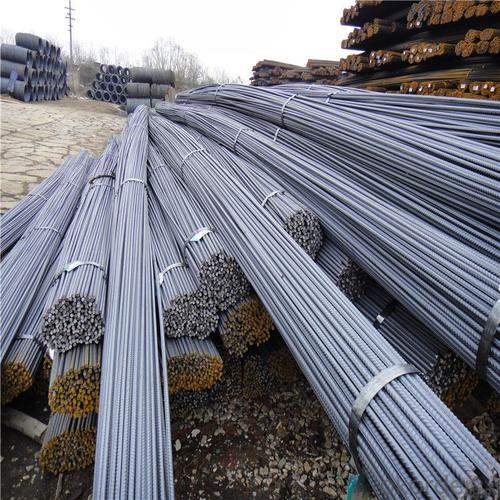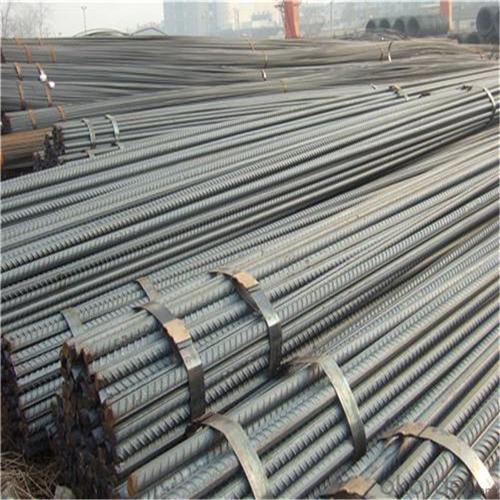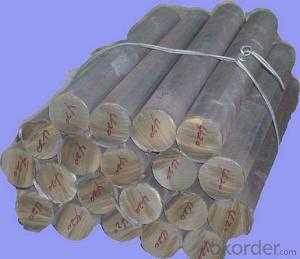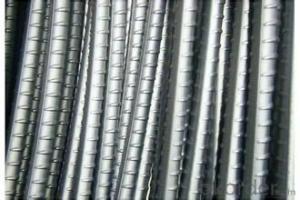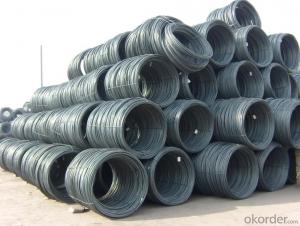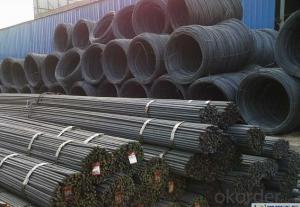High Tensile Deformed Steel Bar
- Loading Port:
- Tianjin
- Payment Terms:
- TT OR LC
- Min Order Qty:
- 140 m.t.
- Supply Capability:
- 50000 m.t./month
OKorder Service Pledge
OKorder Financial Service
You Might Also Like
Specification
High Tensile Deformed Steel Bar
Description of High Tensile Deformed Steel Bar
1, Diameter: 5.5mm-10mm High Tensile Deformed Steel Bar
10m- 40mm High Tensile Deformed Steel Bar
2, Length: 6m, 9m, 12m or customized
3, Standard: GB, ASTM, AISI, SAE, DIN, JIS, EN
2, Produce Process:
hot rolled or forged to get the steel round bar and plate
3, Heat Treatment: annealing, normalizing, tempering, quenching
4, Surface Treatment: Black
5, Quality Assurance: You can ask testing organizations such as SGS, BV, etc. to test our products before shipping.
Chemical Composition of High Tensile Deformed Steel Bar
Grade | Technical data of the original chemical composition(%) | |||||
Reinforcing steel bar HRB335 | C | Mn | Si | S | P | B |
≤0.25 | ≤1.60 | ≤0.80 | ≤0.045 | ≤0.045 | >0.0008 | |
Physics Capability | ||||||
Yield Strength(N/cm2) | Tensile Strength(N/cm2) | Elongation(%) | ||||
≥ 335 | ≥490 | ≥16 | ||||
Reinforcing steel bar HRB400 | C | Mn | Si | S | P | B |
≤0.25 | ≤0.16 | ≤0.80 | ≤0.045 | ≤0.045 | 0.04-0.12 | |
Physics Capability | ||||||
Yield Strength(N/cm2) | Tensile Strength(N/cm2) | Elongation(%) | ||||
≥ 400 | ≥ 570 | ≥ 14 | ||||
Products Show of High Tensile Deformed Steel Bar
Company Information
CNBM International Corporation is the most important trading platform of CNBM group.
Whith its advantages, CNBM International are mainly concentrate on Cement, Glass, Iron and Steel, Ceramics industries and devotes herself for supplying high qulity series of refractories as well as technical consultancies and logistics solutions.


F A Q
1, Your advantages?
professional products inquiry, products knowledge train (for agents), smooth goods delivery, excellent customer solution proposale
2, Test & Certificate?
SGS test is available, customer inspection before shipping is welcome, third party inspection is no problem
3, Factory or Trading Company?
CNBM is a trading company but we have so many protocol factories and CNBM works as a trading department of these factories. Also CNBM is the holding company of many factories.
4, Payment Terms?
30% TT as deposit and 70% before delivery.
Irrevocable L/C at sight.
5, Trading Terms?
EXW, FOB, CIF, FFR, CNF
6, After-sale Service?
CNBM provides the services and support you need for every step of our cooperation. We're the business partner you can trust.
For any problem, please kindly contact us at any your convenient time.
We'll reply you in our first priority within 24 hours.
- Q: What are the specific requirements for special steel used in the defense armor industry?
- The specific requirements for special steel used in the defense armor industry include high strength and hardness, excellent toughness, resistance to ballistic impact and penetration, durability, corrosion resistance, and the ability to be fabricated into complex shapes. Additionally, the steel must meet strict quality control standards and be able to withstand extreme conditions such as high temperatures and harsh environments.
- Q: Can special steel be used in the agricultural equipment manufacturing industry?
- Yes, special steel can be used in the agricultural equipment manufacturing industry. Special steel, which includes alloys such as stainless steel and high-strength steel, offers superior strength, durability, corrosion resistance, and heat resistance properties. These qualities make it suitable for various agricultural equipment components like plows, tillers, harvesters, and machinery parts. Special steel can enhance the performance and lifespan of agricultural equipment, ensuring that they can withstand the demanding conditions and rigorous use in the industry.
- Q: How does special steel contribute to the manufacturing of bearings?
- The importance of special steel in bearing manufacturing cannot be overstated. This type of steel, also known as bearing steel, is specifically designed to meet the demanding requirements of bearings. First and foremost, special steel offers exceptional hardness, which is crucial for bearings to endure heavy loads and high-speed rotations. This hardness allows the bearings to resist wear and deformation, resulting in a longer lifespan and reliable performance. In addition, special steel possesses excellent corrosion resistance. Bearings often operate in harsh environments where they are exposed to moisture, chemicals, and other corrosive substances. The special steel used in their production effectively prevents rust and deterioration, ensuring that the bearings can withstand these challenging conditions. Furthermore, special steel has superior heat resistance and thermal stability. Bearings can generate significant heat during operation due to friction and pressure. The special steel used in their production can withstand high temperatures without losing its structural integrity, preventing premature failure and ensuring consistent performance. Moreover, special steel offers exceptional strength and toughness. These properties are vital for bearings to withstand the intense forces and impacts they experience during operation. The high strength and toughness of the steel prevent fractures, breakages, and other forms of damage, contributing to the overall durability and reliability of the bearings. Lastly, special steel has excellent dimensional stability and machinability. This allows for precise manufacturing and shaping of the bearing components, ensuring accurate dimensions and smooth surfaces. The dimensional stability of the steel ensures that the bearings can maintain their proper fit and alignment within the machinery, minimizing any potential issues or malfunctions. In conclusion, the unique properties of special steel make it indispensable in bearing manufacturing. Its hardness, corrosion resistance, heat resistance, strength, toughness, dimensional stability, and machinability enable bearings to withstand various challenging conditions, ensuring their reliable and efficient operation in a wide range of applications.
- Q: Can special steel be used for nuclear power plant components?
- Yes, special steel can be used for nuclear power plant components. Special steel alloys, such as stainless steel or low alloy steel, are commonly used in the construction of various components in nuclear power plants due to their high strength, corrosion resistance, and ability to withstand high temperatures and radiation exposure. These properties are crucial for ensuring the safety and longevity of nuclear power plants.
- Q: How does special steel contribute to the packaging aftermarket industry?
- The packaging aftermarket industry greatly benefits from the use of special steel, which provides various advantages that enhance the efficiency and quality of packaging processes. Firstly, special steel is renowned for its exceptional strength and durability, making it ideal for the manufacturing of packaging machinery and equipment. This durability ensures that the machinery can withstand the demanding requirements of the industry, resulting in improved reliability and less downtime. Additionally, special steel boasts excellent resistance to corrosion, making it highly suitable for packaging applications that involve exposure to moisture, chemicals, or extreme temperatures. This corrosion resistance extends the lifespan of packaging equipment and prevents degradation, ultimately reducing maintenance costs and enhancing the overall efficiency of the packaging aftermarket industry. Moreover, special steel can be customized to meet specific needs, allowing for the production of tailored packaging solutions. This flexibility and versatility enable manufacturers to create innovative designs that enhance product protection, optimize space utilization, and improve transportation logistics. For example, special steel can be used to manufacture lightweight yet strong packaging materials, reducing shipping costs and minimizing the environmental impact associated with packaging waste. Furthermore, special steel possesses excellent machinability and weldability, making it easy to fabricate intricate packaging components with high precision. This capability enables manufacturers to produce packaging solutions that perfectly fit specific product dimensions, ensuring optimal protection during transit. In conclusion, special steel plays a vital role in the packaging aftermarket industry by offering strength, durability, corrosion resistance, customization options, and excellent machinability. These qualities contribute to the overall efficiency, reliability, and quality of packaging processes, benefiting both manufacturers and consumers.
- Q: How is special steel used in the manufacturing of consumer goods?
- Special steel is used in the manufacturing of consumer goods due to its exceptional properties such as high strength, durability, and corrosion resistance. It is utilized in various products like kitchen appliances, tools, automotive parts, and electronics, enhancing their performance and increasing their lifespan.
- Q: What are the main advantages of using special steel in aerospace applications?
- The main advantages of using special steel in aerospace applications are its high strength-to-weight ratio, excellent corrosion resistance, and exceptional fatigue resistance. These properties make special steel ideal for withstanding the extreme conditions of aerospace environments, ensuring the safety and longevity of aircraft components. Additionally, special steel can be easily machined and welded, allowing for intricate designs and efficient manufacturing processes in the aerospace industry.
- Q: How does special steel contribute to the aerospace noise reduction?
- Special steel contributes to aerospace noise reduction in several ways. Firstly, it is used in the construction of aircraft engine components such as fan blades and turbine discs. These components are subject to high temperatures and pressure, and special steel helps maintain their structural integrity, reducing vibration and noise. Secondly, special steel is also used in the manufacturing of aircraft fuselage and wings, where it helps dampen vibrations caused by aerodynamic forces, thus reducing noise. Additionally, special steel can be used in the production of sound-absorbing materials, which are used to line the interior of aircraft cabins, further reducing noise levels and improving passenger comfort. Overall, the use of special steel in various aerospace applications plays a crucial role in minimizing noise and improving the overall acoustic performance of aircraft.
- Q: What are the challenges in welding special steel alloys?
- Welding special steel alloys poses several challenges due to their unique properties and composition. Some of the main challenges in welding special steel alloys include: 1. High melting point: Special steel alloys often have higher melting points compared to regular steel, which requires higher heat input during the welding process. This can result in difficulties in achieving proper fusion and may require specialized welding equipment and techniques. 2. Thermal expansion mismatch: Special steel alloys may have different coefficients of thermal expansion compared to the base metal or other materials being joined. This can lead to the formation of stress and distortion during welding, which can affect the structural integrity of the welded joints. 3. Sensitivity to heat: Certain special steel alloys are more susceptible to heat-affected zone (HAZ) cracking and other forms of weld defects. The high heat input during welding can cause the formation of brittle phases or precipitates, leading to reduced mechanical properties and potential weld failures. 4. Metallurgical changes: Welding special steel alloys can result in significant metallurgical changes in the base metal and the heat-affected zone. These changes include the formation of new microstructures, changes in hardness, and variations in the chemical composition. These alterations can impact the overall performance and properties of the welded joints. 5. Pre-weld and post-weld treatments: Special steel alloys often require specific pre-weld and post-weld treatments to minimize the risk of weld defects and optimize the properties of the welded joints. These treatments may include preheating, post-weld heat treatment, or the use of specialized filler metals to ensure proper weld integrity. 6. Limited availability of consumables: Special steel alloys may have limited availability of suitable consumables, such as filler metals and shielding gases, which are essential for achieving quality welds. The lack of appropriate consumables can make it challenging to find compatible materials that can provide adequate strength and corrosion resistance in the welded joints. To overcome these challenges, it is crucial to have a thorough understanding of the specific properties and requirements of the special steel alloy being welded. Proper welding techniques, including heat control, filler material selection, and post-weld treatments, should be employed to ensure high-quality welds with optimal mechanical properties and structural integrity. Additionally, collaboration with material suppliers, welding experts, and adherence to industry standards and guidelines can help address the challenges associated with welding special steel alloys effectively.
- Q: How is high-strength steel used in the automotive industry?
- High-strength steel is widely used in the automotive industry for its ability to enhance the safety and performance of vehicles. It is used in various components such as the frame, chassis, and body structure to improve structural integrity, reduce weight, and provide better crash protection. Additionally, high-strength steel allows automakers to design vehicles with improved fuel efficiency and increased load-carrying capacity, making it a crucial material in modern automotive manufacturing.
Send your message to us
High Tensile Deformed Steel Bar
- Loading Port:
- Tianjin
- Payment Terms:
- TT OR LC
- Min Order Qty:
- 140 m.t.
- Supply Capability:
- 50000 m.t./month
OKorder Service Pledge
OKorder Financial Service
Similar products
Hot products
Hot Searches
Related keywords
